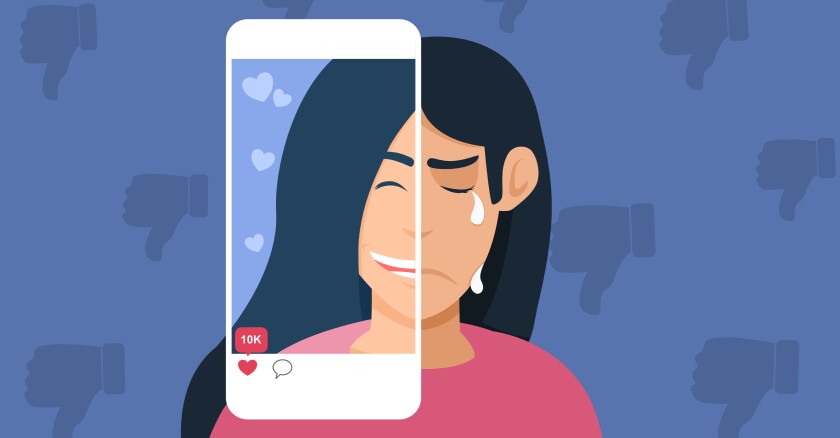Officials said that these mental health issues can, in turn, impact a student's school performance, such as difficulties focusing, studying, or even simply attending school.
"The pressure to maintain a perfect online image, fueled by constant comparison to peers, can lead to feelings of inadequacy and anxiety," according to Staci M. Knox, LCSW, manager of psychological services at OSF Saint Anthony's Health Center.
"Young people may experience fear of missing out when they watch the highlight reels of their friends' lives, bringing on feelings of loneliness and isolation," she said. "In addition, exposure to cyber bullying and negative comments can take a toll on their self-esteem, putting them at risk of experiencing depression."
OSF officials said it's important for caregivers and school personnel to understand what is happening on social media and how to reduce its negative impact. Virtual spaces have become a constant presence in the lives of young people, offering social connectedness and the ease of instant communication — as well as challenging situations that can have negative impacts on youth mental health.
"Sometimes conversations about mental health can reveal that a young person has thoughts or plans to hurt themself or another person," Knox says. "If this happens, they are in crisis and need help promptly."
With the new school year underway, OSF officials said it is crucial for parents, caregivers, teachers, coaches, counselors and school administrators to work together to educate and support young people in navigating responsibly the challenges of a digital world while fostering a healthy sense of self-worth and resilience. They cited the new Mental Health America toolkit, "Selfies, Social, and Screens: Navigating Virtual Spaces for Youth".
The toolkit covers:
- The basics of what youth are doing online
- How online activity can impact mental health
- Tips for talking to youth about difficult feelings they may experience
- How to help young people reduce the potentially harmful effects of social media.
The toolkit also includes information and tips written exclusively for youth. Free, confidential, anonymous screening tools are available at mhascreening.org.
OSF St. Anthony's Psychological Services have mental health clinicians who can help students of all ages address mental health concerns; for appointments call 618-474-6240. More patient care information is online at www.osfsaintanthonys.org.
If you think a child or teen is in immediate danger of taking suicidal action, call the National Suicide Prevention Lifeline at 988.
©2023 The Telegraph (Alton, Ill.). Distributed by Tribune Content Agency, LLC.









